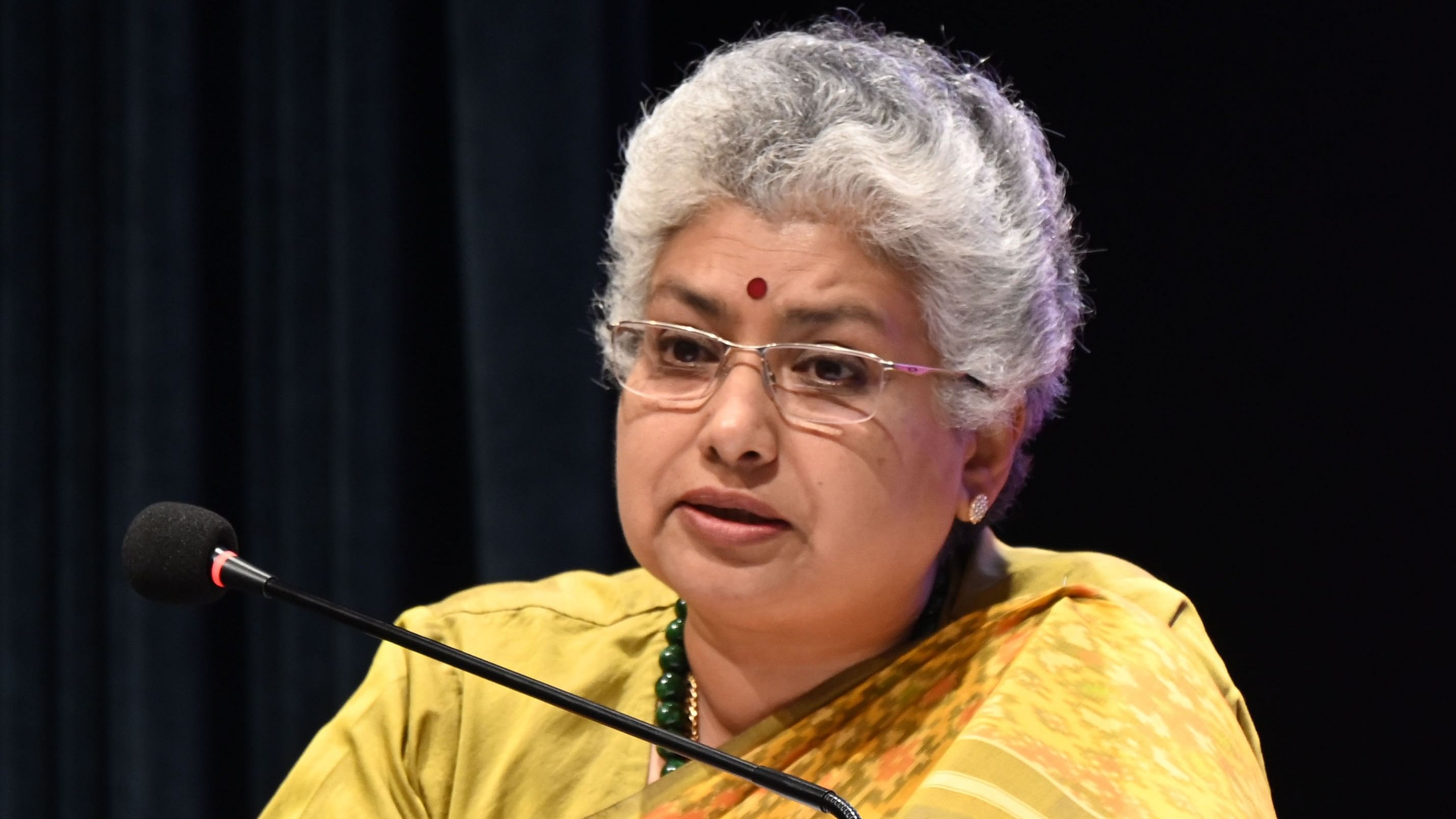
Supreme Court judge B V Nagarathna
Credit: DH Photo
New Delhi: Policies must focus on removing barriers for differently-abled children as removal of these obstacles paves the way for integrating them into society, Supreme Court judge B V Nagarathna said on Saturday.
The judge was delivering her inaugural address for the two-day event, 'National Annual Stakeholders Consultation on Protecting the Rights of Children Living with Disabilities', organised by the apex court's Juvenile Justice Committee in association with UNICEF.
Justice Nagarathna, who is also the committee’s Chairperson, said, "In a world where resources are limited and competing priorities abound, ensuring that policies affecting children living with disabilities are grounded in robust data and vigorous research is paramount.” Justice Nagarathna said the handbook on inclusive terminology is being released by Chief Justice of India D Y Chandrachud during the event.
She hoped that stakeholders and readers would impart the principles on semantics for referring to persons with disabilities and individuals with mental health conditions that have been “painstakingly enunciated in the chapter".
She said children and persons with disabilities have to struggle because of the intersection of their vulnerabilities with barriers in society, and when these are removed, they become part of society with equal access to opportunities.
"Thus, policies should focus on removing these (barriers), such as inaccessible social services and systems, lack of access to assistive technology, lack of accessible communication formats and limited support for their parents or caregivers," said Justice Nagarathna.
"Removing barriers entails ensuring that our schemes and services are inclusive and that they factor in reasonable accommodation. What this means in terms of protection services for children is having an in-depth understanding of the situation for children with disabilities, and having access to the right information, updated data and knowledge sources," she added.
This would also include having regular and relevant surveys, introducing disability indicators, according to the Rights of Persons with Disabilities (RPwD) Act along with appropriate outreach services for identification, early diagnosis and referral of the disabilities, the judge said during her address.
She said these measures have to be taken for children in the community and those residing in institutions.
The measures also include "ensuring ease of access to identification, referral, medical, legal, educational, counselling and assistive services for children with disabilities, ensuring enhanced social security to families of children with disabilities by way of reasonable accommodation, and focusing on breaking the stigma around disabilities," said the apex court judge.
She said the bullying faced by differently-abled children across communities, homes, schools and neighbourhoods, increase their mental distress, leading to retraction from social life, dropping out of schools, which in turn, increase their chances of becoming children in need of care and protection, and even getting in conflict with the law.
"The juvenile justice system, with its emphasis on being inclusive of ensuring social safety nets for all children, should be looking at the range of these services with even greater emphasis,” Justice Nagarathna said.
"This would warrant greater convergence between departments' services and schemes, specifically for children in conflict with law; it would be of utmost importance to ensure justice for children with disabilities, instead of criminalising their disabilities, which well may happen, especially in the case of learning and intellectual disabilities," she added.
Regarding the importance of the event, she said, "From the lens of a transformative constitution and judges discharging duties under it, it was felt that the judicial apparatus must make positive efforts to take the march of administrative steps when it comes to core issues of social competence." She said according to provisions of the Constitution, the state was obliged to not just treat public education and health as its primary duty, but also to make all possible efforts to ensure equitable access to education and healthcare services.
"Thus, we must give our anxious consideration to the question of how effectively the provisions in the Rehabilitation Council of India Act, the National Trust Act for autism and the RPwD Act concerning the protection of children with disabilities have been implemented so far," said Justice Nagarathna.
Underlining society's bias while referring to differently-abled people and children, she said, "In popular culture, mediums, disabilities are often caricatured and this speaks volumes of not only our blind spots but also the stigmas and taboos associated with disabilities." "The time for action is now," the top court judge added.
She said the mission statement of this year's national consultation was a statement of inclusion titled, 'Invisible No More'.
"I hope the two-day national deliberations, along with the preceding discussions at the state level, will help pave the way for concrete action plans and commitments, which we can see to fruition over the years,” she added.